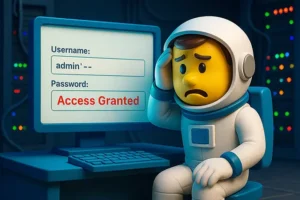Blockchain in Healthcare: Revolutionizing the Industry’s Future Opportunities

Blockchain in healtcare technology has emerged as a game-changer across various sectors, and blockhain in healthcare industry is no exception. This article explores the potential of blockchain in healthcare, addressing the challenges it can solve and the opportunities it presents. With its decentralized, transparent, and secure nature, blockchain in healtcare has the potential to revolutionize healthcare systems worldwide.
See also : A Comprehensive Guide to Buy Ethereum: Your Ticket to the Future of Cryptocurrency

Overview of Blockchain Technology
Blockchain is a distributed ledger technology that enables secure and transparent transactions without the need for intermediaries. Its key principles include decentralization, immutability, and consensus. In various industries, including finance and supply chain, blockchain has demonstrated remarkable benefits, such as increased efficiency, improved transparency, and enhanced security. These advantages make blockchain in healtcare a promising solution for the healthcare sector.
Challenges in the Healthcare Industry
Blockhain in healthcare industry faces significant challenges, including data security and privacy concerns, interoperability issues, and centralization of data. Patient records often suffer from data breaches, leading to privacy violations and compromised trust. Additionally, fragmented systems and lack of interoperability hinder efficient data sharing and collaboration among healthcare providers. Blockchain technology has the potential to address these challenges and provide robust solutions.
Blockchain Solutions in Healthcare
One area where blockchain in healthcare is electronic health records (EHRs). By leveraging blockchain, EHRs can be securely stored, accessed, and shared among authorized healthcare providers while ensuring data integrity and transparency. Patients can have greater control over their data, granting permission for specific access, thereby protecting their privacy.
Clinical trials and research can also benefit from blockchain technology. Blockchain ensures data provenance and immutability, reducing fraud and ensuring trustworthiness. Consent management can be streamlined, allowing patients to grant and revoke access to their data, thereby protecting their privacy rights. Additionally, blockchain enables efficient collaboration and data sharing among researchers, accelerating the pace of medical advancements.
Supply chain management blockhain in healthcare can be significantly enhanced through blockchain implementation. Tracking and verifying pharmaceutical products become more transparent, reducing counterfeiting and ensuring patient safety. Blockchain’s immutable nature provides an auditable trail of every transaction, enhancing accountability and trust within the supply chain.
Telemedicine and remote patient monitoring are other areas where blockchain in helatcare can make a difference. By enabling secure and decentralized communication, blockchain ensures the privacy and integrity of patient data during remote consultations. Smart contracts can automate billing and payment processes, eliminating paperwork and reducing errors.
Implementation Challenges and Considerations
Implementing blockchain in healthcare comes with its own set of challenges. Regulatory and legal implications must be carefully addressed to ensure compliance with existing laws and frameworks. Technical scalability and interoperability are crucial for seamless integration with existing healthcare systems. Stakeholder engagement and adoption are vital to achieving widespread blockchain implementation, requiring education and collaboration among healthcare providers, policymakers, and patients. Integration with existing systems should be carefully planned to minimize disruptions and ensure a smooth transition.
Case Studies and Success Stories
blockhain in healthcare organizations have already embraced blockchain technology. For instance, MedRec uses blockchain to enhance EHRs’ security and accessibility, enabling patients to have full control over their medical records. Another success story is the partnership between Chronicled and LinkLab, which utilizes blockchain to improve the transparency and efficiency of the pharmaceutical supply chain.
Future Trends and Opportunities
The future of blockchain in healthcare looks promising. Advancements in blockchain technology, such as scalability improvements and increased interoperability, will further enhance its potential in the industry. Blockchain can foster innovation by facilitating secure data sharing, enabling research collaborations, and accelerating the development of personalized medicine. Collaboration and standardization efforts will play a crucial role in shaping the future of blockchain in healthcare.
Conclusion
Blockchain technology has the potential to transform the healthcare industry, addressing critical challenges and unlocking new opportunities. By leveraging the decentralized and transparent nature of blockchain, healthcare organizations can enhance data security, improve interoperability, streamline processes, and empower patients to have greater control over their medical information.
As blockchain technology continues to evolve, its implementation in healthcare holds immense promise. However, challenges must be overcome, including regulatory and legal considerations, technical scalability, stakeholder engagement, and seamless integration with existing systems. Collaboration among industry stakeholders is vital to ensure successful adoption and maximize the benefits of blockchain technology in healthcare.
Case studies have demonstrated the potential of blockchain in healthcare. Projects like MedRec and partnerships between Chronicled and LinkLab have showcased the effectiveness of blockchain in securing electronic health records and enhancing the transparency of the pharmaceutical supply chain, respectively. These success stories serve as inspiration for other healthcare organizations to explore and adopt blockchain solutions.
Looking ahead, future trends and opportunities in blockchain technology will shape the healthcare landscape. Advancements in scalability and interoperability will further improve the efficiency and effectiveness of blockchain implementation. This will open doors to innovative applications such as secure data sharing for research collaborations, personalized medicine development, and efficient healthcare supply chain management.
In conclusion, blockchain technology has the power to revolutionize the healthcare industry. By addressing challenges related to data security, interoperability, and centralization, blockchain solutions can enhance patient care, streamline processes, and improve transparency. To fully leverage the potential of blockchain in healthcare, stakeholders must collaborate, overcome implementation challenges, and embrace the opportunities that lie ahead. By doing so, we can create a future where blockchain plays a pivotal role in transforming healthcare delivery and improving patient outcomes.
And for those of you who want to grow your Instagram account, you can directly use our service free instagram followers and you can like your post on instagram with Free instagram likes




